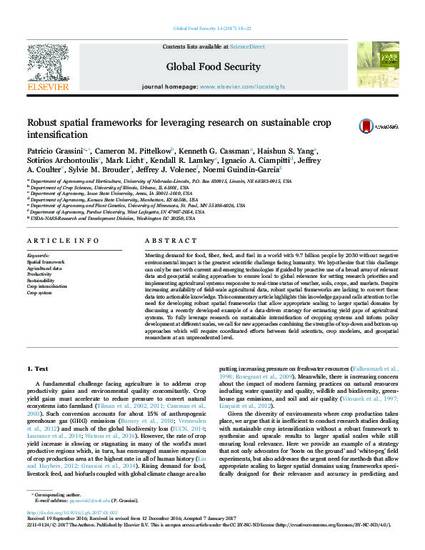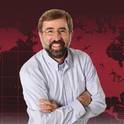
Meeting demand for food, fiber, feed, and fuel in a world with 9.7 billion people by 2050 without negative environmental impact is the greatest scientific challenge facing humanity. We hypothesize that this challenge can only be met with current and emerging technologies if guided by proactive use of a broad array of relevant data and geospatial scaling approaches to ensure local to global relevance for setting research priorities and implementing agricultural systems responsive to real-time status of weather, soils, crops, and markets. Despite increasing availability of field-scale agricultural data, robust spatial frameworks are lacking to convert these data into actionable knowledge. This commentary article highlights this knowledge gap and calls attention to the need for developing robust spatial frameworks that allow appropriate scaling to larger spatial domains by discussing a recently developed example of a data-driven strategy for estimating yield gaps of agricultural systems. To fully leverage research on sustainable intensification of cropping systems and inform policy development at different scales, we call for new approaches combining the strengths of top-down and bottom-up approaches which will require coordinated efforts between field scientists, crop modelers, and geospatial researchers at an unprecedented level.
Available at: http://works.bepress.com/kendall_lamkey/71/

This article is published as Grassini, Patricio, Cameron M. Pittelkow, Kenneth G. Cassman, Haishun S. Yang, Sotirios Archontoulis, Mark Licht, Kendall R. Lamkey et al. "Robust spatial frameworks for leveraging research on sustainable crop intensification." Global Food Security (2017). 10.1016/j.gfs.2017.01.002. Posted with permission.